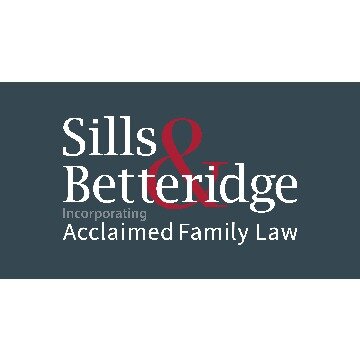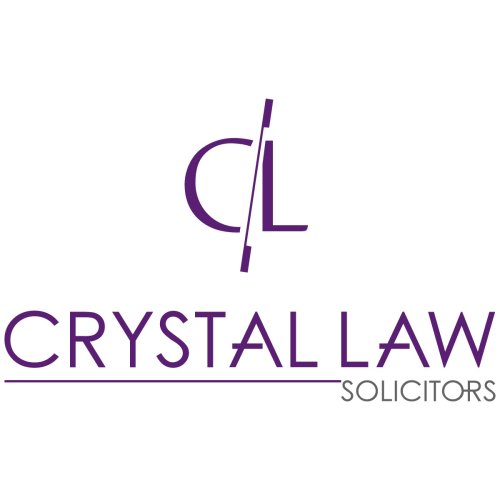Best Child Abuse Lawyers in United Kingdom
Share your needs with us, get contacted by law firms.
Free. Takes 2 min.
Free Guide to Hiring a Family Lawyer
Or refine your search by selecting a city:
List of the best lawyers in United Kingdom
About Child Abuse Law in United Kingdom
Child abuse in the United Kingdom is taken seriously and is addressed through a combination of criminal and civil laws aimed at protecting the welfare of minors. The law recognizes various forms of abuse, including physical, emotional, sexual abuse, and neglect. Authorities such as the police, social services, and family courts work together to ensure children's safety and prosecute offenders. The primary legal frameworks for protecting children include the Children Act 1989, the Children and Families Act 2014, and specific safeguarding guidance provided by the government.
Why You May Need a Lawyer
Individuals may require legal assistance in child abuse cases for several reasons. You may be a parent or guardian accused of abuse seeking defense, a family member or acquaintance wanting to report suspected abuse, or seeking to ensure the safety and wellbeing of a child. Legal advice may also be necessary if child protection services become involved, or if you need to navigate family court proceedings regarding custody or visitation rights. A lawyer can provide guidance, representation, and help you understand your rights and responsibilities.
Local Laws Overview
The key legal frameworks around child abuse in the UK involve both criminal and family law aspects. Under criminal law, various offences cover acts of abuse, including assault, sexual offences, and the offense of causing or allowing a child to suffer serious harm. Family law, governed by acts like the Children Act 1989, emphasizes the welfare of the child as the paramount concern. Local authorities have the duty to investigate situations where children may be at risk, and courts can issue orders for child protection, including Care Orders, Supervision Orders, and Emergency Protection Orders. The law also includes mandatory reporting requirements for certain professionals.
Frequently Asked Questions
What constitutes child abuse under UK law?
Child abuse includes physical harm, emotional harm, sexual abuse, and neglect. It involves any action or lack of action that causes significant harm to a child.
Who can report child abuse?
Anyone who suspects child abuse can report it to local authorities or the police. Certain professionals are legally obligated to report suspected abuse.
What should I do if I am accused of child abuse?
If accused, it's crucial to seek legal advice immediately. A lawyer can help you understand your rights, assist with legal defenses, and represent you in proceedings.
How does social services get involved?
Social services may become involved after a report of suspected abuse. They have the authority to investigate and, if necessary, apply to the court for orders to protect the child.
Can a child be removed from my home without my consent?
Yes, if there is an immediate risk to the child's safety, authorities can remove the child under an Emergency Protection Order or Police Protection Order without prior consent.
What legal rights do children have in the UK regarding protection from abuse?
Children have the right to protection from abuse and the right to express their views in matters affecting them. Legal systems emphasize the child's welfare as paramount.
What is the role of Family Court in child abuse cases?
The Family Court is responsible for making decisions on matters such as custody, visitation, and protective orders to ensure the child's welfare and safety.
Can legal proceedings be initiated anonymously?
Initial reports to authorities can be made anonymously; however, court proceedings typically require identification of parties, though special measures can protect identities in some cases.
What support is available for victims of child abuse?
Victims of child abuse can access various support services, including counseling, legal aid, and child advocacy services to support recovery and justice.
How can I find a lawyer specializing in child abuse in the UK?
You can find a lawyer through legal directories, referrals from governmental child protection agencies, or legal aid services online platforms.
Additional Resources
For more assistance, consider contacting the following organizations:
- NSPCC (National Society for the Prevention of Cruelty to Children)
- Childline (provides free, confidential support for children)
- Local Council Child Protection Services
- Legal Aid Agency (for information on legal aid and assistance)
- Police Child Protection Units
Next Steps
If you need legal assistance in a child abuse matter, consider the following steps:
- Identify the specific legal issue (reporting, accusation, child custody, etc.)
- Contact a lawyer specializing in family and child protection law
- Gather any documentation or evidence related to the case
- Engage with support services for emotional and practical assistance
- Follow any legal advice and court instructions carefully
Seeking early legal guidance can help protect your rights and the welfare of the child involved.
Lawzana helps you find the best lawyers and law firms in United Kingdom through a curated and pre-screened list of qualified legal professionals. Our platform offers rankings and detailed profiles of attorneys and law firms, allowing you to compare based on practice areas, including Child Abuse, experience, and client feedback.
Each profile includes a description of the firm's areas of practice, client reviews, team members and partners, year of establishment, spoken languages, office locations, contact information, social media presence, and any published articles or resources. Most firms on our platform speak English and are experienced in both local and international legal matters.
Get a quote from top-rated law firms in United Kingdom — quickly, securely, and without unnecessary hassle.
Disclaimer:
The information provided on this page is for general informational purposes only and does not constitute legal advice. While we strive to ensure the accuracy and relevance of the content, legal information may change over time, and interpretations of the law can vary. You should always consult with a qualified legal professional for advice specific to your situation.
We disclaim all liability for actions taken or not taken based on the content of this page. If you believe any information is incorrect or outdated, please contact us, and we will review and update it where appropriate.
Browse child abuse law firms by city in United Kingdom
Refine your search by selecting a city.














